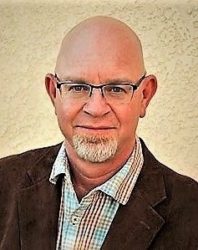 Scott Brassart
Scott Brassart
For most addicts working the 12 steps of recovery is essential to long-term healing. To this end, I am going to walk addicts (and non-addicts) through the process with a series of blogs in 2024. This starts, of course, with a discussion of Step 1.
Step 1 reads as follows:
We admitted we were powerless over our addiction – that our lives had become unmanageable.
For a lot of people, walking into an addiction treatment center, a therapist’s office, or a 12-step meeting for the first time is a form to working step 1. The simple act of asking for help is, in and of itself, an admission of powerlessness and unmanageability. However, there is much more that we can do to fully work step 1. Most of this work is designed to unearth our complete addiction history and its impact on our lives and the lives of those around us. In this way, we are able to see, usually for the first time, the totality of our addiction and its directly related negative life consequences.
When I am working with a 12-step sponsee, I assign the following tasks to help that individual work step 1.
Task 1: Create an Inventory of Your Powerlessness
Being powerless means we have lost control over our addiction. We engage in addictive behaviors compulsively, even when we say we don’t want to. And we have no ability to stop once we’ve started. Being powerless means that despite the promises we’ve made to ourselves or others that we are going to stop our addictive behaviors, we find ourselves right back at it.
 To create this inventory, list 30 or more examples of how you are powerless over your addiction. Use the following format: “Even though I (list a particular consequence), I continued to (list a particular addictive behavior).”
To create this inventory, list 30 or more examples of how you are powerless over your addiction. Use the following format: “Even though I (list a particular consequence), I continued to (list a particular addictive behavior).”
Example: Even though I got a written warning at work for misusing my company-issued phone, I continued to use hookup apps on it.
Task 2: Create an Unmanageability Inventory
Unmanageability speaks primarily to the consequences of the addiction, both direct (obviously connected) and indirect (less obviously connected). Many of us have relationship troubles, reprimands at work, financial problems, physical issues, and even arrests that are very obviously connected to our out-of-control behaviors. Less obvious consequences may include depression, anxiety, feeling worn out, forgetting to pay bills, eating poorly, losing interest in previously enjoyable activities, etc. Any and all of these issues, both direct and indirect, are examples of unmanageability.
To create this inventory, list 30 or more examples of unmanageability (problems and consequences) related to your sexual behaviors. Try to include examples of emotional, physical, spiritual, family/partnership, career, educational, legal, and financial consequences, along with any other consequences you can think of.
Example: I was fired from my job for repeatedly taking long lunches, mostly because I was getting erotic massages and lap dances.
Task 3: Share Your Step 1 Inventories
In some 12-step programs, our step 1 inventories are shared with our sponsor and perhaps our therapist or therapy group. In other 12-step programs, especially sexual recovery groups, step 1 inventories are shared in a meeting, so others in recovery can know us, understand our issues, and support us more effectively.
For many of us, sharing our step 1 inventories is the hardest part of recovery. This is because most of us, when we first enter recovery, are filled with guilt, shame, remorse, and self-loathing. Plus, we’ve gotten very used to keeping secrets from our partner, family, friends, and the world at large. Opening up about the nature and extent of our behavior is anathema to our entire existence. It feels completely unnatural, and we don’t want to do it.
That said, sharing our addiction history and consequences lifts the burden of compartmentalizing the addiction and lugging it around in secret. Letting go of secrets frees us and allows us to move forward with a different, better life. Often, the act of sharing our step 1 inventories is the true start of recovery. Many of us state that our life began to get better the moment we got honest with our support network by sharing our step 1.
In next month’s post to this site, we will continue our discussion of the 12 steps with an examination of step 2.
* * * * * * * * * *
If you or someone you care about is struggling with sex or porn addiction, help is available. For porn addicts, Seeking Integrity offers a low-cost online workgroup series. Click HERE for information. We offer a similar workgroup series for sex addicts. Click HERE for information.
